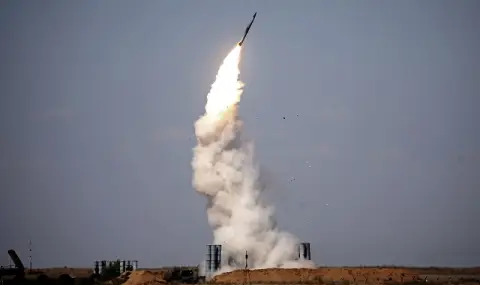Russian President Vladimir Putin rejected his Ukrainian counterpart Volodymyr Zelensky's April 20 proposal for a temporary 30-day moratorium on long-range strikes on civilian infrastructure.
He also rejected a proposal to extend his own 30-hour Easter truce.
This is according to the Institute for the Study of War (ISW).
Putin announced the end of the Easter truce on April 21.
He tried to soften the rejection of the proposal by saying that Russia and other unnamed actors should study strikes on civilian targets where military personnel are operating, and "take appropriate solutions". Putin did not propose the possibility of creating independent monitoring mechanisms. Russian officials have previously expressed disinterest in Western-led monitoring mechanisms as a condition for a future ceasefire in Ukraine.
Putin also sought to justify Russia's recent missile strikes on Ukrainian civilian infrastructure. He acknowledged that Russian forces had recently struck civilian infrastructure in the city of Sumy, likely the April 13 Russian missile strike on the city of Sumy. But he suggested that Ukrainian military personnel there were a legitimate military target.
US President Donald Trump expressed hope on April 20 that Russia and Ukraine would strike a deal this week, possibly with a general ceasefire agreement in mind that would precede future peace talks.
Kremlin spokesman Dmitry Peskov appeared to respond to Trump's statement by saying that the Kremlin was not ready to discuss a timeframe.
The Kremlin's refusal to commit underscores its disinterest in ending the war through peace talks in the near future.
Russian state media has stepped up calls by the occupying head of the Kherson region, Vladimir Saldo, for additional territorial concessions from Ukraine in areas to which Russia has not yet made formal claims. Saldo told TASS in the Kremlin on April 21 that "the return" on the west (right) bank of the Dnieper River is "fundamentally important" and "an absolute priority" for Russia.
Saldo claimed that Ukrainian forces would continue their efforts to use the east (left) bank of the river as a "leverage" against Russia and that the presence of Ukrainian forces on the west bank was preventing the resumption of navigation on the river.
Saldo concluded that "the segment of the Dnieper River that passes through Kherson, Zaporizhia and Dnipropetrovsk regions should be fully under Russian control" in order to ensure the development of infrastructure "related to the river".
Russian forces currently occupy positions only on the east bank of the Dnieper River in Kherson and Zaporizhia regions, but the Russian president has consistently insisted since June 2024 Ukraine to cede all of Zaporizhia and Kherson Oblasts to Russia.
Saldo appears to be calling for additional Russian territorial claims along the river in central Dnipropetrovsk Oblast - an area that Russia has not officially claimed or illegally annexed. It is unclear how much of the river's banks in Dnipropetrovsk Oblast that Saldo claims should be under Russian control, or whether Saldo is implying that Russian forces should occupy a large area east and northeast of the river so that Russia "fully controls" the river and its immediate surroundings. Russian forces may want to control at least 25 kilometers of territory on both banks of the Dnieper River to prevent Ukrainian forces from launching artillery barrages against the area.
Saldo's call for additional Russian territorial claims along the Dnieper River is consistent with other official Kremlin statements, as Russia continues to make sweeping territorial demands on Ukraine while offering no concessions of its own. Kherson, Zaporizhia, and Dnepropetrovsk regions are notably included in the amorphous, fictional region of "Novorossiya", which Kremlin officials often claim is "inseparable" from Russia and invoke to make additional territorial claims in southern Ukraine.
Putin uses the term "Novorossiya" on April 21 at the ceremony for the All-Russian Municipal Award "Service", claiming that municipal workers are working in very difficult conditions "in the regions of Donbas and Novorossiya".
Putin has previously instructed Russian forces to create "buffer zones" in areas of Ukraine that Russia has not officially claimed, including in the Kharkiv and Sumy regions.
Saldo's call for Russian control over areas in Kherson, Zaporizhia, and Dnipropetrovsk regions along the Dnieper River to "guarantee infrastructure development" would be in line with Putin's previous goals of creating "buffer zones."
Kremlin officials continued to reiterate Russia's pre-war demands on April 21. Kremlin spokesman Dmitry Peskov said on April 21 that Ukraine's potential membership in NATO would threaten Russia's national interests.
Russian officials have repeatedly said that any peace agreement in Ukraine must eliminate the "root causes" of the conflict. for the war, such as the alleged violation of NATO obligations not to expand eastward.
The statements of Saldo and Peskov show that Russia's pre-war demands are not up for discussion, while at the same time making ever broader territorial demands on Ukraine.
